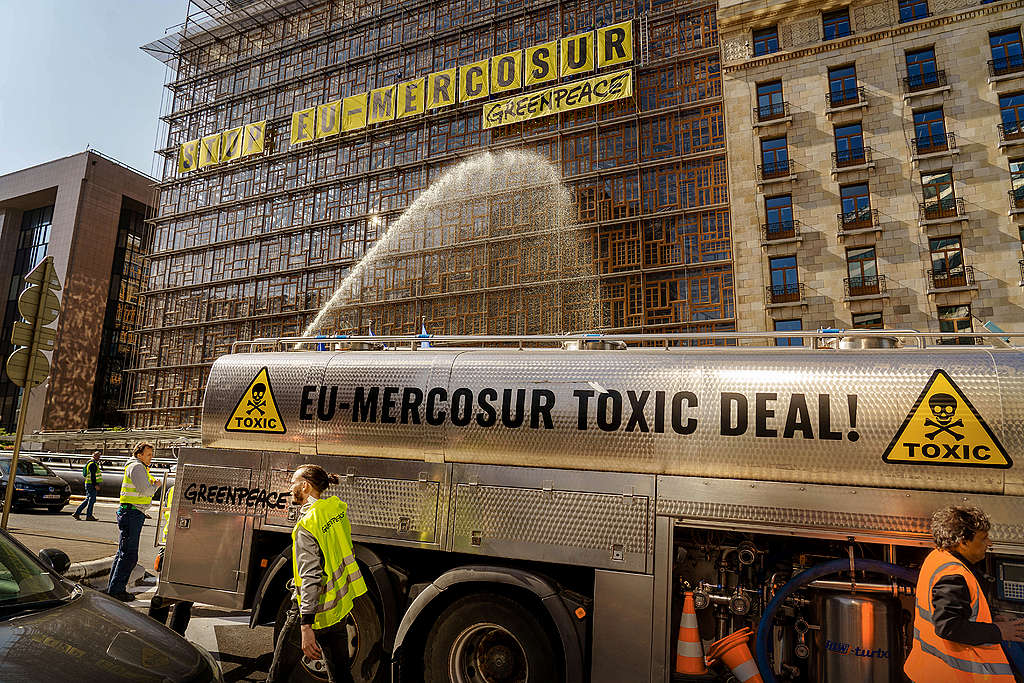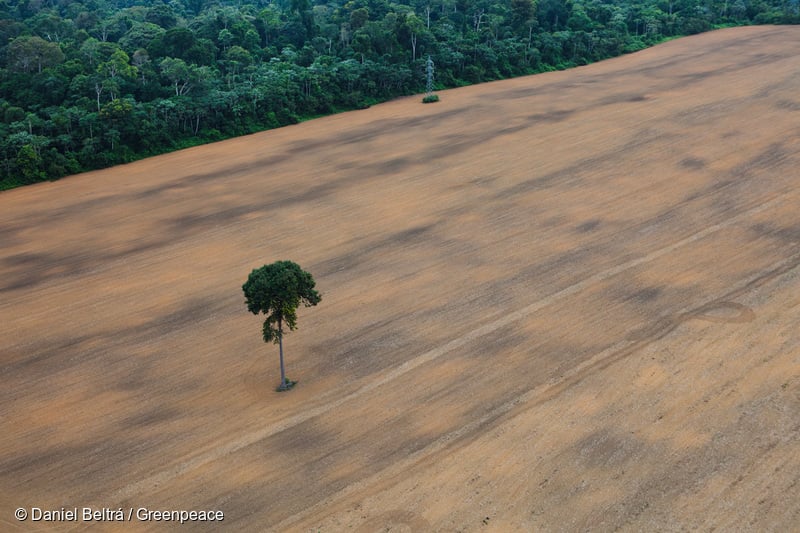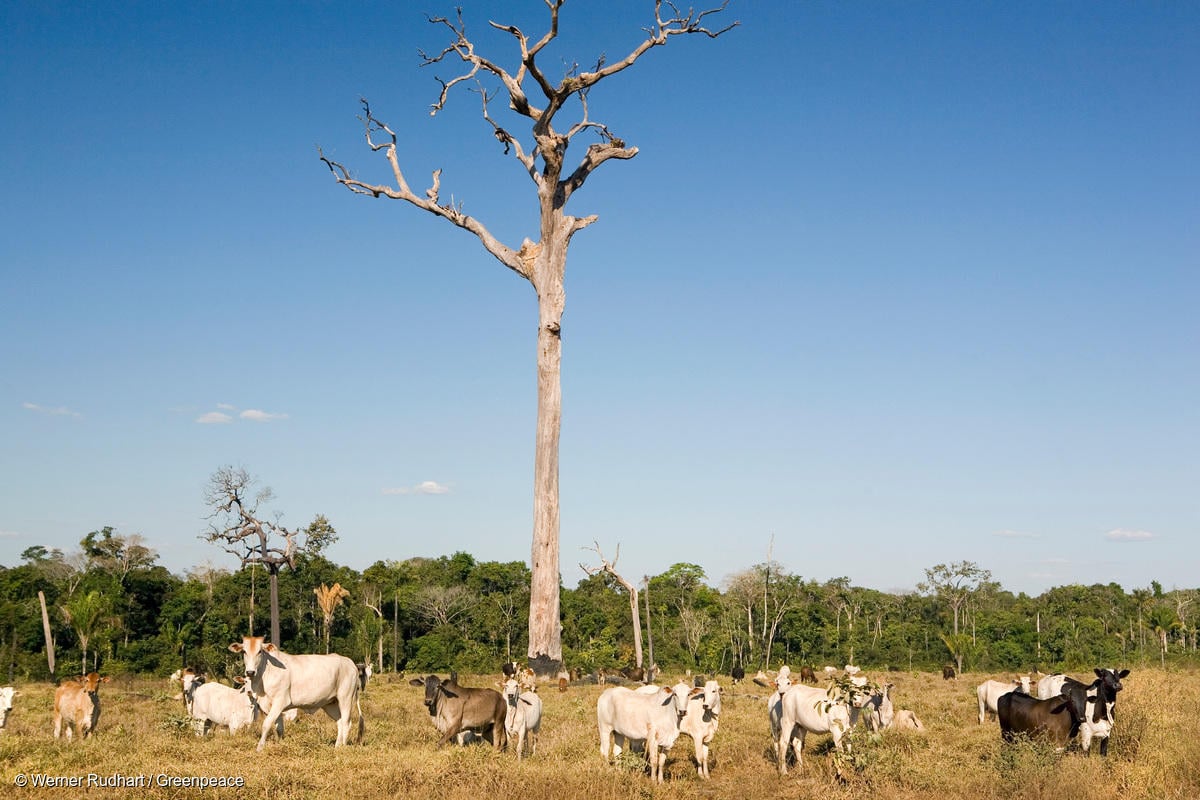Brussels – Activists from Greenpeace Belgium scaled the EU Council headquarters in Brussels, and sprayed the building with an agricultural pesticide pump, while EU trade ministers discussed the EU-Mercosur trade deal. The climbers hung banners on the facade of the building reading “Stop EU-Mercosur”, and an agricultural truck sprayed clouds of water to simulate pesticides, protesting increases in exports of toxic chemicals expected if the deal is concluded.

**High-quality photo and video available free to use here**
The proposed EU-Mercosur deal has come under fire from several governments and parliaments, as well as farmers and civil society from both sides of the Atlantic as a disaster for local agriculture, nature, human rights and the climate. Assessments from several organisations including Greenpeace show that lower tariffs and controls on products like car parts and pesticides from Europe and beef from South American countries will increase the already alarming rate at which nature is destroyed.
Greenpeace Germany trade campaigner Lis Cunha said: “This trade deal is a disaster, and threatens to undercut European farmers with cheap beef farmed at the expense of destroyed nature. And to destroy nature faster, European chemical companies will pump South America full of pesticides, including those deemed too toxic for use in the EU.”
Transatlantic pesticide trade
A Greenpeace Germany study has found residues of several pesticides on limes from Brazil and sold in the EU. The use of these pesticides produced in the EU – among them the herbicide glyphosate, and the insecticides imidacloprid and cypermethrin – is expected to increase sharply due to the trade deal’s planned eliminated tariffs on EU pesticide exports to the Mercosur countries.
A recent investigation by Unearthed, Greenpeace UK’s investigative unit, and the Swiss NGO Public Eye revealed the EU’s plans to export more than 10,000 tonnes of banned bee-killing pesticides in just one year. According to the investigative report, these neonicotinoids, or neonics, are prohibited from use in the EU but are exported to mostly poorer countries, causing untold damage to pollinators and the wider ecosystem.
The proposed EU-Mercosur deal would eliminate tariffs on EU pesticide exports to the Mercosur countries and reduce controls on imported foods, meaning both pesticide use and adverse effects are expected to increase sharply.
Next steps for EU-Mercosur
Another round of negotiations between the EU and the Mercosur countries is scheduled to take place on 26 June in Buenos Aires, Argentina. The European Commission expects to announce the conclusion of negotiations at the EU and the Community of Latin America and Caribbean States (CELAC) Summit on 17 and 18 July in Brussels, paving the way for the ratification process to start in the second half of 2023.
**High-quality photo and video available free to use here**
Contacts:
Greenpeace Germany trade campaigner Lis Cunha, +49 1703832076, [email protected]
Greenpeace EU press desk: +32 (0)2 2741911, [email protected]
For breaking news and comment on EU affairs: www.twitter.com/GreenpeaceEU
Greenpeace is an independent global campaigning network that acts to change attitudes and behaviour, to protect and conserve the environment and to promote peace. We do not accept donations from governments, the EU, businesses or political parties. Greenpeace has over three million supporters, and 26 independent national and regional organisations with offices in more than 55 countries.
EU Transparency Register: 9832909575-41



